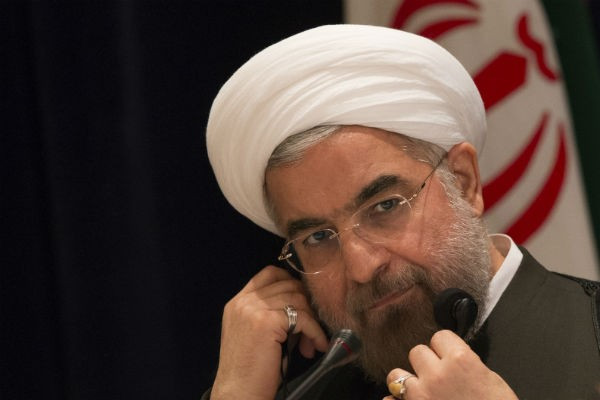Iran Denies Cyber War Commander Mojtaba Ahmadi was Assassinated
Iran's Revolutionary Guard has denied reports that the commander of its Cyber War Headquarters, Mojtaba Ahmadi, has been assassinated.

In a statement posted on the Alborz website, which is closely linked to the powerful Iranian Revolutionary Guard, the group has quashed reports that one of its officials had been assassinated by two men on a motorbike:
"This statement denies all the news about assassinating one of our workers after a very sudden incident happened to him," the Imam Hassan Mojtaba division of the Revolutionary Guards Corps said.
"We are investigating the incident and the intention of the attacker or attackers." The Revolutionary Guards also issued a statement warning against prematurely assigning blame to anyone.
There was no confirmation of the person's name or rank but confirmed he had been found dead near the town of Karaj, located in northwest of the country's capital Tehran.
The statement comes 12 hours after first reports emerged in western media that the commander of Iran's Cyber War Headquarters, Mojtaba Ahmadi had been assassinated after last being seen leaving his home on Saturday on his way to work.
Assassination
The reports of the assassination also came from the Alborz website with the first report appearing in the Telegraph in the UK, before being picked up by news agencies around the world. While the report was widely reported there was never any official confirmation of an assassination by the Iranian authorities.
According to the Telegraph report, Ahmadi was last seen leaving his house on Saturday heading for work. Ahmadi was later found with two bullets in the heart in a wooded area near the town of Karaj.
"I could see two bullet wounds on his body and the extent of his injuries indicated that he had been assassinated from a close range with a pistol," an eyewitness told Alborz. Local police are reported as saying two people on a motorbike were involved in the assassination.
Since 2007 five Iranian nuclear scientists and the head of the country's ballistic missile program have been assassinated, with the Iranian regime previously pointing the finger at Israel's external intelligence agency Mossad.
Explosive device
However the US and UK have also been accused of involvement in previous attacks, the most recent of which saw Mostafa Ahmadi Roshan, a chemist who worked in the uranium enrichment plant at Natanz, killed when an explosive device blew up on his car in January last year.
The Natanz facility is the same one which was targeted by the Stuxnet computer virus which was jointly developed by the US and Israel to set back Iran's nuclear program.
The news of another high-ranking Iranian official's death comes in the same week as Israel's Prime Minister Benjamin Netanyahu told the UN General Assembly that Israel would stop Iran's nuclear arms drive single-handedly if necessary: "Israel will never acquiesce to nuclear arms in the hands of a rogue regime that repeatedly promises to wipe us out."
It also comes in the same week which saw US-Iran relations seemingly thaw, with Iran's president Hassan Rouhani and Us president Barack Obama speaking on the phone.
© Copyright IBTimes 2025. All rights reserved.





















